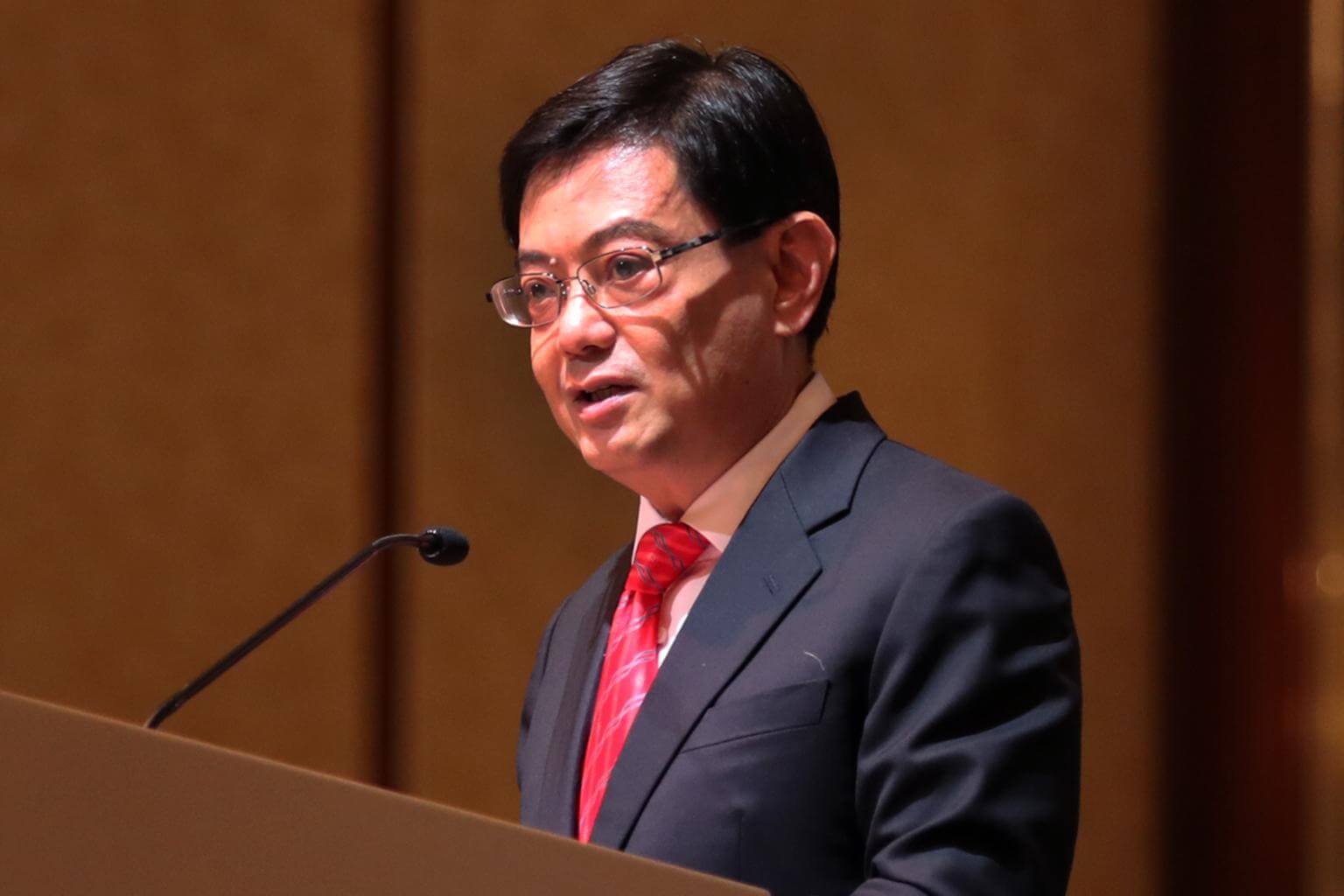Keeping Singapore cohesive, forward-looking is biggest challenge: Heng Swee Keat
Sign up now: Get ST's newsletters delivered to your inbox

Singapore has prospered because, since independence, it was able to achieve good consensus on these challenges, said Deputy Prime Minister Heng Swee Keat.
ST PHOTO: GIN TAY
BEIJING - One of the biggest challenges he faces as Singapore's new deputy prime minister is maintaining the societal consensus that the country has achieved so far and finding ways to mobilise Singaporeans to solve problems together, said Mr Heng Swee Keat.
He added that Singapore needs to be able to tackle immediate issues while keeping sight of the long run.
To do so, the Republic has to be able to maintain the societal consensus it was able to achieve in the last 50-odd years of independence on what its short- and long-term challenges are, Mr Heng told Xinhua news agency in an interview published on Wednesday (May 22) as he arrived in Beijing for a week-long visit to China.
Singapore has prospered because, since independence, it was able to achieve good consensus on these challenges, he noted.
Asked what he felt was his biggest challenge in his job as Singapore's new deputy prime minister, Mr Heng said it is maintaining this consensus and finding ways to mobilise Singaporeans to solve problems together while keeping Singapore cohesive and forward-looking.
Among the challenges Singapore faces are a rapidly ageing population, which entails questions of how to keep Singaporeans productive, living long, healthy lives and to be able to keep doing the things they enjoy.
Another is how to transform the economy in this paradoxical time of declining support for globalisation, even as the world has become very interdependent because of it, said Mr Heng.
Even as the Government tackles the immediate challenges, it has to think long-term and sometimes "undertake policies that may not be so obvious or of immediate concern to our people", said Mr Heng.
"But if we set ourselves on the right trajectory from the beginning, I think we have a better chance of succeeding." he said.
"In that regard, how do we keep the consensus and how do we mobilise our people to come together to deal with short-term challenges, as well as longer term challenges and opportunities, (that) I would say is the biggest challenge. Keeping Singapore united, cohesive and forward-looking is critical to our future."
At a time of massive change in automation and work, Singapore cannot afford to either overestimate or underestimate the impact of technological revolution and needs to adopt a calibrated approach with policies that work for both the short and long haul, he said.
Mr Heng added that he believes technological change can be a force for good in the coming years, provided Singaporeans and businesses are prepared to be future-proof.
While today's challenges are greater, so are the opportunities, such as a greater scope for regional cooperation, said Mr Heng.
The new Singapore Shanghai Comprehensive Cooperation Council (SSCCC), for instance, will look at various avenues of cooperation, including the Belt and Road Initiative, financial connectivity, as well as in the area of technology and innovation, he noted.
Mr Heng is slated to co-chair the council's inaugural meeting during his visit to China, together with Shanghai mayor Ying Yong. The SSCCC is the eighth business council between Singapore and a provincial-level area in China.
As the new co-chair of the Joint Council for Bilateral Cooperation (JCBC) that will take place later this year, Mr Heng said he hopes the meeting will give new impetus to the Singapore-China relationship.
This is the first year that Mr Heng will co-chair the highest-level forum between Singapore and China with Chinese Vice-Premier Han Zheng, having taken over from Senior Minister Teo Chee Hean.
Mr Heng expressed confidence in deepening bilateral cooperation, which he said will also stimulate development in the wider Asean region.
"If you look at the history of our cooperation across the JCBC, what you can see is how at every stage of China's development and at every stage of development of the Singapore economy and the global economy, we have been able to find new modalities of cooperation, building on what was already there, and to keep these strong and growing (ties) but also growing into new areas of cooperation," he said.


